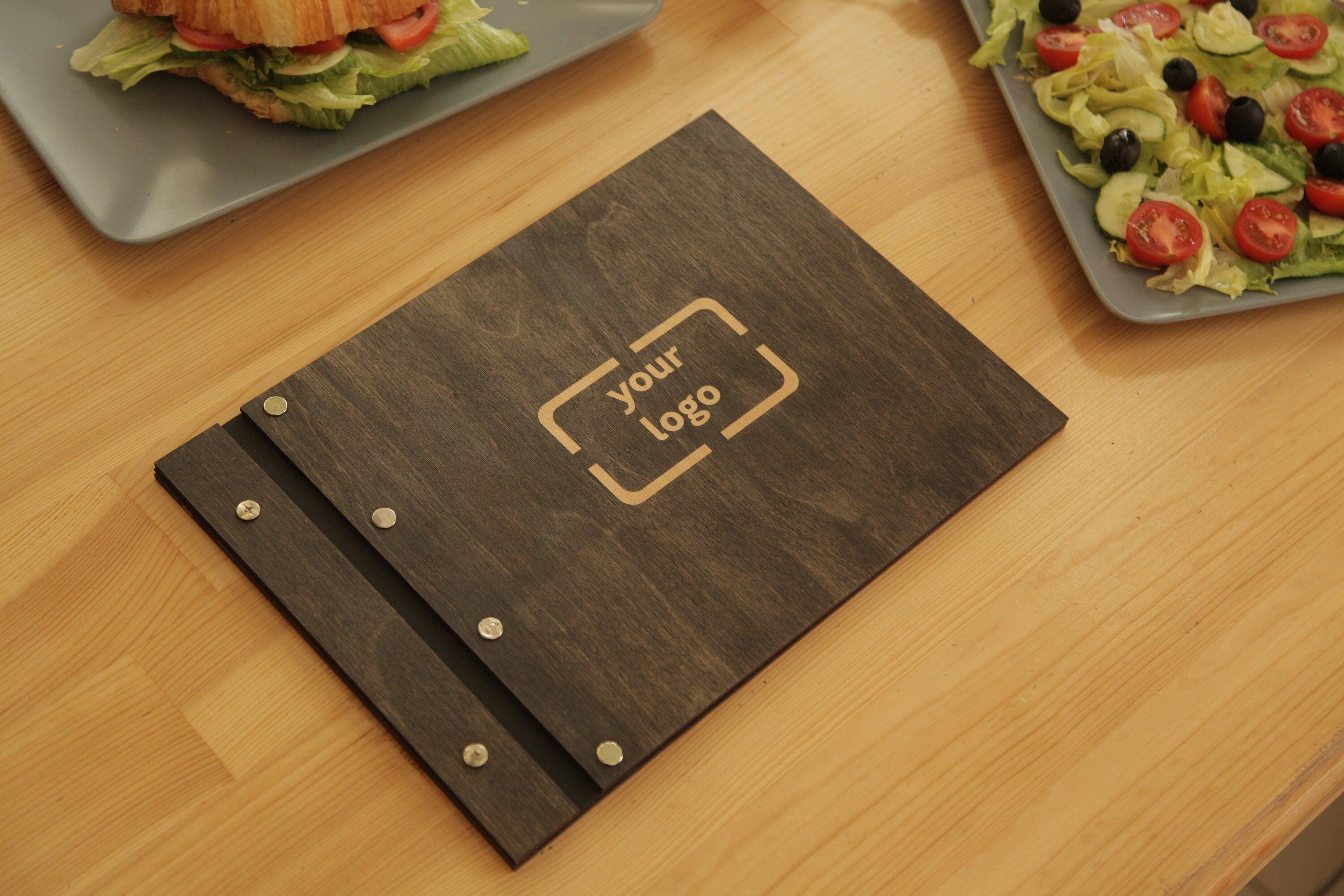
Effective Restaurant Bookkeeping: Secrets to Financial Success
Running a restaurant resembles orchestrating a complex dance – countless elements must work in perfect harmony to deliver a memorable experience. At the heart of every thriving restaurant lies meticulous financial oversight. Restaurant bookkeeping goes beyond simple number-crunching; it forms the core that supports every operational choice you face.
With industry profit margins typically hovering at just 3-5%, smart bookkeeping for restaurants often determines whether your business flourishes or merely stays afloat. This guide delves into essential practices, tools, and strategies restaurant owners must master for financial health. Whether you're opening your first location or fine-tuning an established operation, our team at Kyivworkshop has gathered these insights to help your restaurant reach its maximum potential.

The Fundamentals of Restaurant Financial Management
Before tackling complex systems, let's nail down the basic elements of sound accounting for restaurant businesses.
Separating Business and Personal Finances
The cornerstone of financial clarity starts with drawing a firm line between personal and business money matters. This separation isn't optional for several crucial reasons:
-
Makes tax preparation straightforward and compliant
-
Delivers accurate pictures of how your business performs
-
Shields personal assets from business liabilities
-
Builds a professional financial record for potential funding
Set up dedicated business bank accounts, credit cards, and records from the beginning. This foundational step paves the way for all other bookkeeping for restaurant practices.
Setting Up a Restaurant-Specific Chart of Accounts
Your chart of accounts functions as the structural blueprint for organizing financial transactions. Restaurants need specialized categories:
-
Food and beverage inventory
-
Kitchen equipment and upkeep
-
Front-of-house supplies
-
Labor (broken down by department)
-
Rent and utilities
-
Marketing expenses
-
Technology systems
-
Licenses and permits
This tailored structure gives you the detailed visibility needed to spot problem areas quickly and make evidence-based decisions.
The Financial Benefits of Proper Financial Management
When done right, solid bookkeeping for restaurant operations yields concrete advantages:
-
Tax optimization: Spot all legitimate deductions
-
Theft prevention: Identify unusual patterns that suggest problems
-
Menu planning: Make smart decisions about pricing, staffing, and growth
-
Funding opportunities: Show professional records when seeking capital
-
Mental clarity: Rest easier knowing your finances are organized
Essential Restaurant Bookkeeping Systems
Effective financial oversight requires consistent routines implemented at various intervals. Here's a breakdown of the key systems that form the backbone of proper restaurant bookkeeping.
Daily Sales and Cash Flow Tracking
Each day offers chances to gather financial insights. Put these daily practices in place:
-
Match POS reports with actual cash, credit card, and digital payment receipts
-
Document comps, voids, and discounts with clear explanations
-
Log daily food and beverage sales by category
-
Watch labor hours in real-time
-
Confirm cash deposits and note any differences
Many restaurants have discovered that tools like a waitress book dramatically improve transaction accuracy and help servers monitor their sales during shifts. These physical tracking tools work alongside digital systems by providing immediate documentation where service happens.
Weekly Reconciliation and Reporting
Weekly check-ins stop small issues from growing into major headaches:
-
Compare actual food costs against projected figures
-
Check labor percentages across departments
-
Match vendor invoices with received goods
-
Modify upcoming purchases based on inventory levels
-
Look ahead at cash flow projections for the coming weeks

Monthly Financial Review Processes
Monthly reviews deliver the broader perspective needed for strategic decisions:
-
Create and analyze profit and loss statements
-
Look for balance sheet changes from previous months
-
Complete inventory counts and valuation
-
Figure key performance indicators
-
Update budgets and forecasts based on actual results
Seasonal Adjustment Strategies
Most restaurants face significant seasonal fluctuations. Smart bookkeeping for small restaurant owners includes planning for these changes:
-
Draft seasonal cash flow projections
-
Adjust ordering and staffing proactively
-
Build reserves during busy periods to cover slower times
-
Implement seasonal menu adjustments with appropriate costing
-
Schedule marketing initiatives to boost traffic during traditionally quieter periods
Sample Bookkeeping Templates and Systems
Each restaurant needs a customized approach, but starting with tested templates saves considerable time and prevents expensive mistakes. Here's a sample bookkeeping framework for restaurant businesses:
-
Daily sales and labor tracking sheet
-
Weekly inventory reconciliation form
-
Monthly profit and loss template
-
Cash flow projection worksheet
-
Annual budget planning document
Adapt these templates to fit your specific operation while maintaining the essential structure for thorough financial tracking.
Restaurant-Specific Bookkeeping Tools and Technology
The right tools transform bookkeeping for restaurant operations from tedious work into a streamlined process that yields actionable insights.
POS Integration with Accounting Systems
Modern point-of-sale systems should connect directly to your accounting software, eliminating manual data entry and minimizing errors. Key benefits include:
-
Automatic daily sales recording
-
Live inventory updates
-
Labor tracking and scheduling integration
-
Digital receipt capture
-
Custom reporting
Cloud-Based vs. Desktop Solutions
While traditional desktop accounting software has served restaurants for years, cloud-based options offer distinct advantages:
-
Check financial data from anywhere
-
Automatic backups and updates
-
Multiple user access with permission controls
-
Less IT maintenance required
-
Seamless integration with mobile apps
For most contemporary restaurants, cloud-based systems provide the flexibility and functionality needed for dynamic operations.
Mobile Solutions for Small Establishments
Small restaurant owners typically juggle multiple roles and need financial tools that accommodate constant movement. Mobile bookkeeping for small restaurant operations allows:
-
Processing invoices while on the move
-
Capturing and categorizing receipts
-
Quick financial snapshot views
-
Tracking time and expenses
-
Immediate bank and credit card transaction reconciliation
Physical Tools That Support Financial Accuracy
Digital systems work best when paired with thoughtfully designed physical tools. Wood Check Presenters from Kyivworkshop, for instance, do more than just elegantly deliver the bill—they help organize payment processing, reducing errors while enhancing customer experience.
Technology Adoption Timeline
Not every restaurant needs advanced technologies right away. Consider this phased approach:
-
Startup phase: Basic accounting software, integrated POS, digital receipt management
-
Growth phase: Inventory management system, enhanced reporting, payroll automation
-
Established phase: Business intelligence tools, forecasting software, custom dashboards
-
Multi-unit phase: Enterprise resource planning, centralized management systems

Critical Financial Metrics Every Restaurant Owner Should Track
Effective restaurant bookkeeping involves more than recording transactions—it means extracting meaningful patterns from financial data. These key metrics tell the real story behind your numbers.
Food and Beverage Cost Percentages
Your food cost percentage (food cost ÷ food sales) typically should range between 28-32%, varying by concept. Track this weekly to spot:
-
Inconsistent portioning
-
Theft or waste problems
-
Pricing issues
-
Purchasing inefficiencies
Monitor beverage costs separately, aiming for 18-24% for alcoholic beverages.
Labor Cost Analysis
Labor usually accounts for 30-35% of revenue in full-service restaurants. Break this down by:
-
Front-of-house vs. back-of-house
-
Management vs. hourly staff
-
Productive hours vs. non-productive time
-
Sales per labor hour
Tracking these figures helps identify scheduling inefficiencies and productivity issues.
Prime Cost Calculations
Your prime cost (total cost of goods sold + total labor cost) may be the single most important metric for restaurant profitability. For a healthy operation, this figure should generally stay below 60% of total revenue.
How Financial Tracking Can Increase Average Check Values
Understanding detailed financial patterns offers insights into how to increase average restaurant check sizes without alienating customers. Your bookkeeping data reveals valuable patterns that smart restaurateurs leverage:
-
Identify your most profitable menu items and coach staff to suggest them
-
Track server performance to see who excels at upselling
-
Use historical data to create targeted promotions during specific dayparts
-
Analyze which menu categories sell well together for effective combo promotions
Menu Engineering and Profitability
Your menu serves as more than a list of offerings – it's a strategic financial tool. Good bookkeeping provides the data needed for effective menu engineering:
-
Spot high-profit, popular items ("stars")
-
Identify high-profit, less popular items ("puzzles") that might need better placement
-
Address high-popularity, low-profit items ("workhorses") through portion or pricing adjustments
-
Consider removing low-profit, low-popularity items ("dogs")
Common Restaurant Bookkeeping Challenges and Solutions
Even seasoned restaurant operators face financial management hurdles. Let's tackle the most common challenges and their solutions.
Managing Tips and Gratuities
Tips create unique bookkeeping complexities:
-
Record declared tips for tax reporting
-
Implement tip pooling systems with transparent calculations
-
Create clear documentation for tip distribution
-
Separate tip income from restaurant revenue
-
Watch tip percentages as indicators of service quality
Handling Cash Transactions
Despite the rise of digital payments, many restaurants still handle significant cash. Protect yourself with:
-
Daily documented cash counts
-
Two-person verification systems
-
Separate cash drawers for each server
-
Regular bank deposits
-
Spot-check procedures
Inventory Waste Tracking
Food waste directly hits your bottom line. Implement systems to:
-
Log all spoilage with reasons
-
Document returned dishes and their causes
-
Track kitchen errors separately from spoilage
-
Calculate waste as a percentage of food cost
-
Create accountability systems for reducing identified problems
Preparing for Seasonal Fluctuations
Many restaurants experience predictable seasonal patterns. Proper bookkeeping for restaurant businesses includes preparing for these shifts:
-
Accumulate cash reserves during peak periods
-
Adjust staffing models seasonally
-
Create flexible vendor arrangements
-
Develop promotional strategies for traditionally slow periods

When to Consider a Restaurant Bookkeeping Service
As your restaurant grows, you'll reach a point where professional financial help becomes not just valuable but necessary. Here's how to navigate that transition.
Signs It's Time to Hire a Professional
Consider a restaurant bookkeeping service when:
-
You spend more than 10 hours weekly on bookkeeping tasks
-
Financial management prevents you from focusing on customer experience
-
You've experienced tax filing errors or compliance issues
-
Your growth plans require more sophisticated financial insights
-
You're seeking funding or considering expansion
What to Look for in a Bookkeeping Service
Not all financial professionals understand the restaurant industry. When evaluating a potential bookkeeper restaurant specialist, look for:
-
Specific experience with restaurant clients
-
Knowledge of industry benchmarks and standards
-
Familiarity with restaurant POS systems
-
Understanding of tip reporting and sales tax requirements
-
References from similar restaurant concepts
Questions to Ask Potential Service Providers
When interviewing potential bookkeeping partners, ask:
-
How many restaurant clients do you currently serve?
-
What restaurant-specific software are you proficient with?
-
How do you handle tip reporting and distribution?
-
What financial reports will you provide, and how often?
-
How do you approach inventory valuation?
-
What is your fee structure, and what services are included?
Working Effectively with Your Bookkeeper
Once you've engaged a restaurant bookkeeping service, maximize the relationship through the following:
-
Clear communication about your goals and pain points
-
Established routines for document sharing and review
-
Regular financial review meetings
-
Openness about challenges and concerns
-
Willingness to implement recommended systems
Transition Planning
Moving from DIY to professional bookkeeping for restaurant operations requires:
-
Documentation of current processes
-
Clean-up of historical records
-
Implementation of new systems (often gradually)
-
Staff training on new procedures
-
Clear timeline and milestone establishment
Implementing Effective Restaurant Bookkeeping Practices
With fundamentals, systems, tools, and metrics established, let's explore practical implementation strategies.
Creating Standard Operating Procedures
Document your financial processes in detailed SOPs that cover:
-
Daily cash handling and reconciliation
-
Inventory receiving and invoice processing
-
Payroll preparation and verification
-
Month-end closing procedures
-
Financial report generation and review
These documented procedures ensure consistency even during staff transitions.
Training Staff on Financial Responsibility
Financial accuracy isn't solely the bookkeeper's job. Create a culture of financial awareness by:
-
Training servers on accurate order entry and payment processing
-
Educating kitchen staff about portion control and waste reduction
-
Involving managers in budget creation and adherence
-
Sharing relevant financial metrics with department leaders
-
Implementing accountability systems with appropriate incentives
First-Year Financial Milestones
New restaurants should establish these progressive financial goals:
-
Month 3: Accurate daily sales and labor tracking
-
Month 6: Consistent food and beverage cost percentages
-
Month 9: Predictable cash flow patterns
-
Month 12: Complete the financial reporting system with actionable insights
Success Stories: The Competitive Advantage
Restaurants that excel at financial management gain significant competitive advantages:
-
A struggling bistro implemented detailed food cost tracking and reduced waste by 5%, directly adding $45,000 to their annual bottom line.
-
A neighborhood cafe shifted from annual to monthly inventory counts, identifying a $12,000 annual theft problem that was resolved through improved controls.
-
A full-service restaurant used financial data to restructure its menu, increasing its average restaurant check by $7 without raising prices on individual items.
From Numbers to Success: The Power of Restaurant Bookkeeping
Effective restaurant bookkeeping transcends simple compliance or record-keeping – it creates a financial foundation supporting every aspect of your business. By implementing proper accounting systems, using appropriate tools, monitoring key metrics, and knowing when to seek professional help, you can transform financial management from a necessary task into a genuine competitive edge.
At Kyivworkshop, we recognize that the physical tools in your restaurant—from Wood Check Presenters to Waitress books—play a vital role in guest experiences and operational efficiency. When these quality touchpoints are based on solid financial systems, you create a recipe for lasting success in one of the world's most challenging industries.
Financial excellence in restaurant bookkeeping develops progressively. Begin with fundamentals, establish consistent systems, employ suitable technology, track essential metrics, tackle challenges proactively, and seek professional guidance when needed. Your restaurant's financial health deserves nothing less than your fullest attention.













